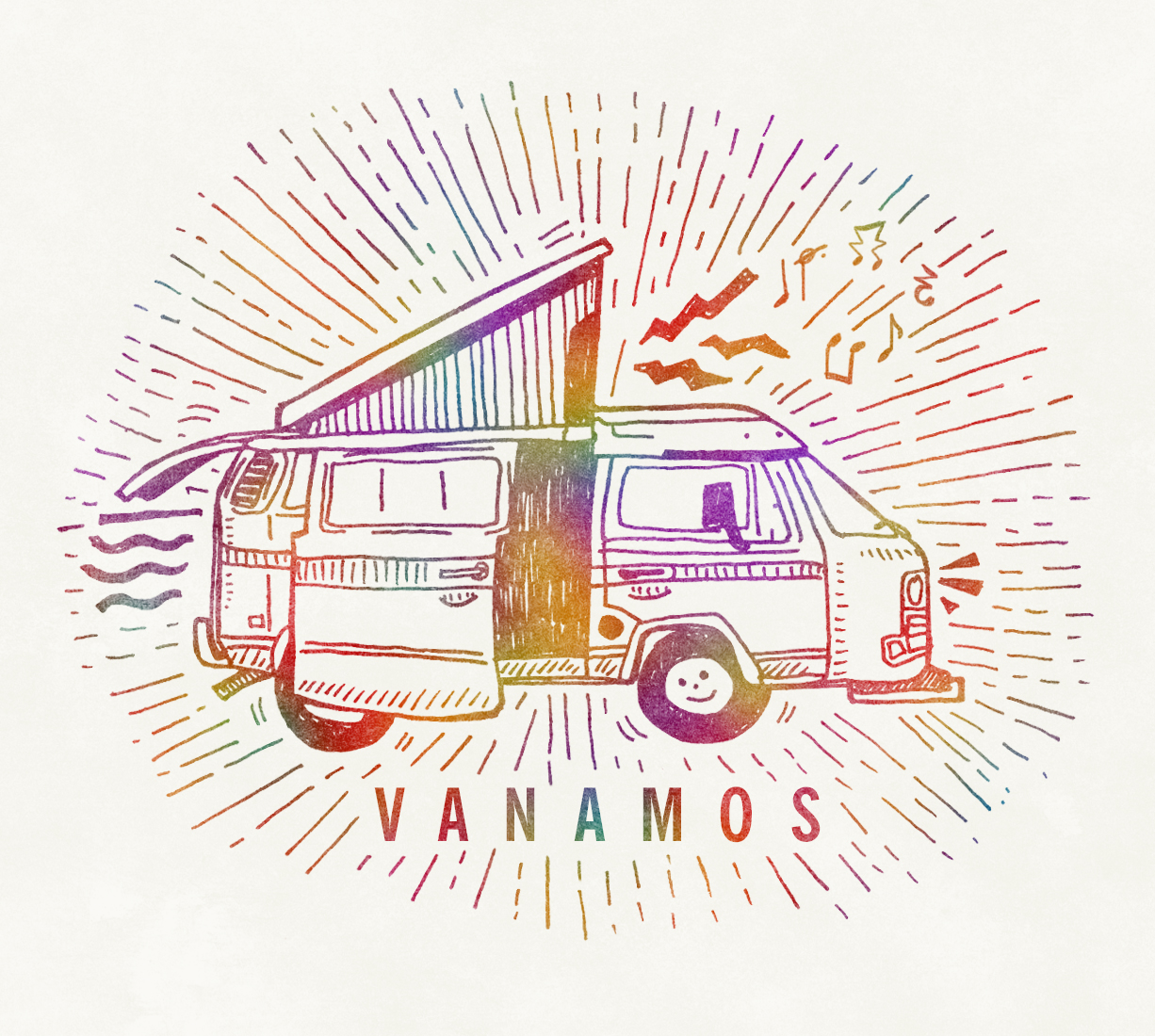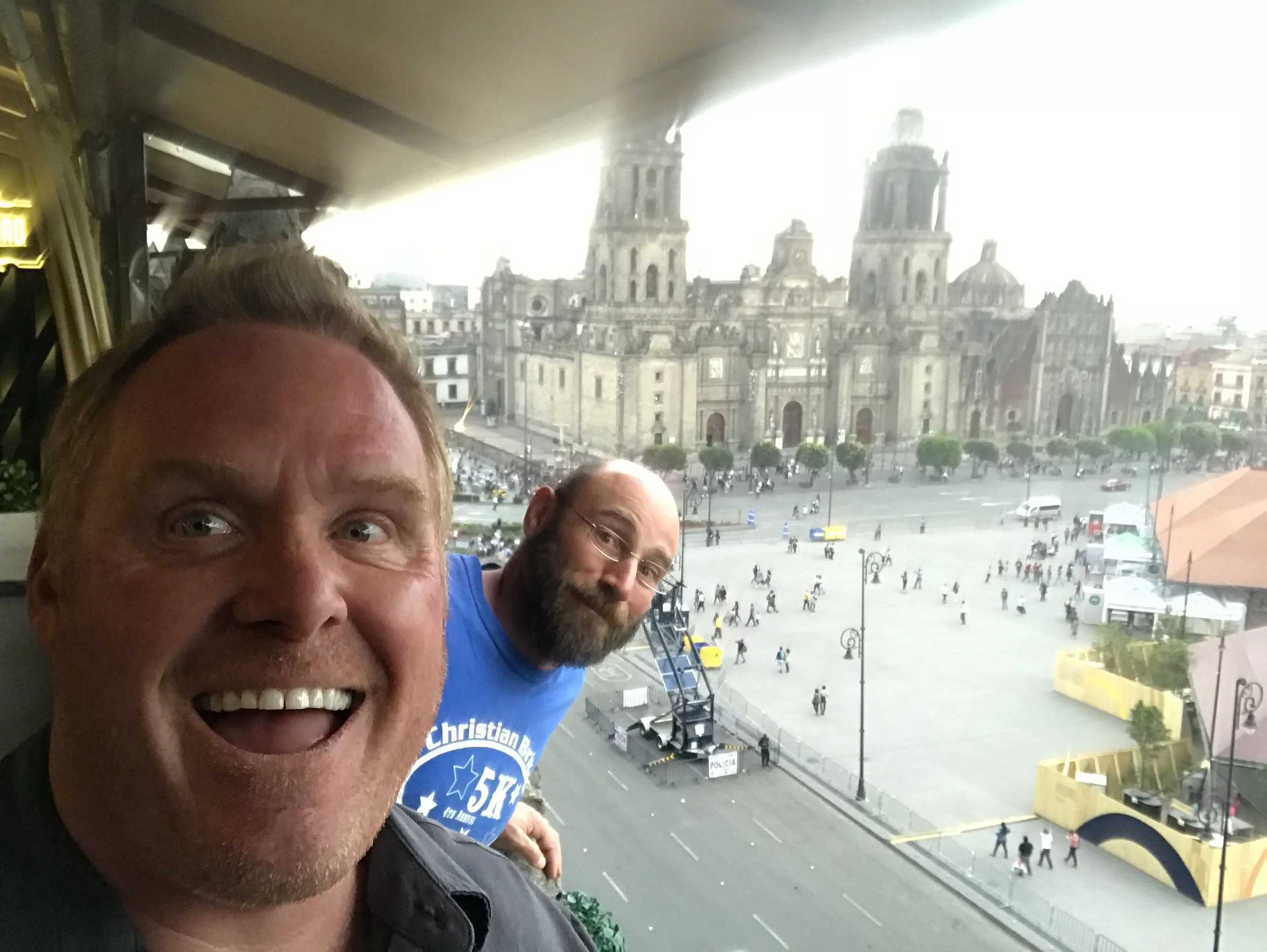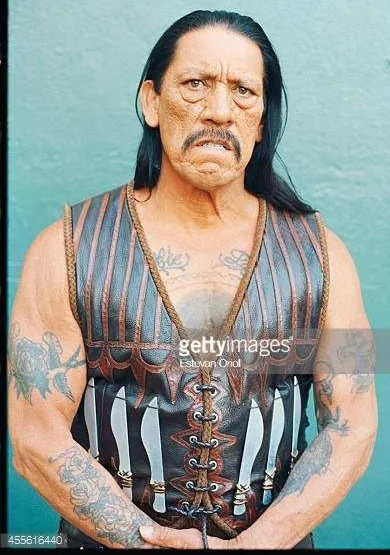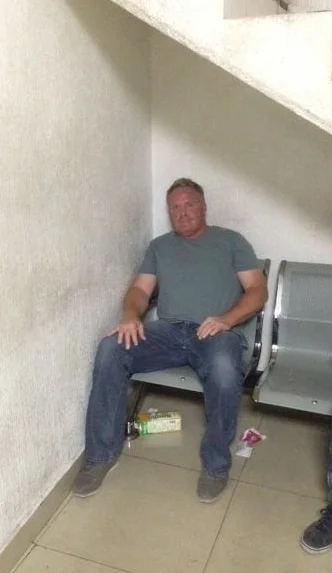My friend Jim visited and together we went to Mexico City to see if we could break any of our high school drinking records. As it turns out, we are a lot older and the only thing we have in common with our younger selves is that we are all up at 4 a.m.. In the salad days, it was because we were just getting home. Now, it’s because our bladders can’t last through the night. Nevertheless, we had fun and did add one more chapter to our life’s work.
One evening, after finishing our evening meal at a restaurant in Zona Rosa, we poured the few sips that remained of Jim’s beer into a to-go cup and hit the street. Drinking in public is illegal in Mexico, however, we had been lulled into a false sense of security when, a few days earlier, we decided to grab two beers from the OXXO (basically, a 7-11) and relax in the Alameda Central after spending hours wandering around sightseeing.
Jim, Paul, and the Catedral Metropolitana, in the Zocalo in Mexico City. Construction on the catedral was begun in 1573, just slightly before we were born.
The Alameda Central is a green spot in the middle of the city with wide, tree-lined paths, dozens of street vendors hawking everything from tacos to shoe laces, and shaded benches where young couples go to make out. Hundreds of people walked past us and nobody said anything about our two 16-ounce Tecate cans.
It was less than a minute that we were on the street in Zona Rosa with half a beer in a plastic cup, however, that a police officer approached. Gesturing at the cup, he told us that it was illegal to drink beer on the street in Mexico. Now, I can recall dozens of instances where I have seen people drinking beer on the street in Mexico, including ten or eleven that involved me, and nobody was hassled, but I didn’t protest. Instead, based on an experience that my wife and I had with a police officer in Acapulco a few years ago, we pretended that we didn’t speak Spanish and didn’t understand what he was telling us. This might have been a mistake.
This is what the English-speaking police officer looked like. Perhaps we should have tried harder to speak Spanish.
The officer led us down the street to a colleague who spoke English and who looked a lot like this guy. Mr. English-speaking officer told us we were in violation of the law and that the fine was 3,800 pesos, which is about US$200. This amounted to about a hundred bucks per sip of beer. To this point, I thought we might get away with a warning – we weren’t drunk after all, just white – but it was now abundantly clear that the shake down was in full swing.
Rather than pay, I decided to try another tactic that my wife and I had practiced successfully in Acapulco. I asked that we be taken to the station to be given a ticket and pay the fine. This strategy is designed to take the incentive away from the officer to continue to extort us and instead move on to easier targets. The theory being that if the officer has to go through the trouble of taking us to the station, make a show of completing some paperwork, and then split the fine collected with everyone else at the station, he or she will let us go, or at least reduce the fine quoted on the street significantly so that it gets paid on the spot.
[Note: I recognize that it is not the recommended practice to pay any bribe to an officer on the street as it encourages the officer to continue to seek money from others to line his or her own pockets, but I also recognize that sometimes there are good reasons why it happens.]
Mr. English responded that it was not possible to take us to the station and that if we did not pay him, Jim would be taken to jail for anywhere from 36 to 72 hours. We offered 500 pesos. One of the four officer circus we had attracted seemed interested, but Mr. English refused to lower the bribe.
Around this time a Mexican couple, Mario and Monica, approached and asked what was happening. I explained the circumstances of the shake down and Mario got into a long discussion with the officers about the illegality of what they were doing, how it reflected poorly on Mexico, and how they (the officers) knew all this and should stop. I chipped in by saying that we were sorry and that we would just leave and not do it again.
Mr. English said that the laws were designed for the safety of Mexicans and put Jim in the back of a police car. Four officers piled in with him and they drove off. At no point had they searched Jim, read him his rights, cuffed him, or told him he was under arrest. It was a bit surreal to see Jim loaded into a police car and taken away, and this being Mexico, I was now a bit worried. And I expect Jim - who was actually in the police car – was having a few thoughts of his own.
Fortunately, one of the officers had written down the street address of the station where they were taking Jim and handed it to me. Mario suggested I wait. He thought the officers might just drive around for a few minutes and try to talk Jim into paying and then drop him back where they picked him up. Mario assured me that Jim could not go to jail for the offense and that he knew a lawyer if we needed one. This was all encouraging news, but I still held in the back of my mind all those horrible things we hear about lawless Mexican police.
While I waited with Mario and Monica we exchanged phone numbers and made small talk. I told them I had recently moved to San Miguel de Allende and Mario told me that he hated the place because while he was there for his first and only visit, his camera had been stolen from his car trunk. He must drive a fancy car and have a fancy camera because later in the conversation he also mentioned he had a camera stolen from his car in Mexico City. After about ten minutes and no Jim, Monica called me an Uber to take me to the station.
Screen shot of Google Maps and the police station, located at Santa Maria la Rivera, # 37, in Colonia Santa Maria la Rivera. If I could write a review, it would be this - This place sucks. It is dirty and the staff is not very hospitable. Find another place to stay.
Rodrigo, the Uber driver, was incredulous when I explained to him that I was Monica and where we were going and why. I guess it was not the kind of ride he had expected to give. Nevertheless, he offered to help and spoke to the desk officer when we arrived at the station. She told us Jim was not there but would be arriving shortly.
I figured Jim was lying beaten in an alley, or worse, but it turned out that the reason it took so long to get to the station was that the officers had stopped for tacos and to chat with a few friends. Jim had briefly considered making a run for it while they were talking to their friends, but decided instead to hide a few hundred pesos in his sock in case he did get beaten for his wallet.
About ten minutes after Rodrigo and I arrived at the station, Jim arrived with his four officer entourage. He looked relieved to see me and I found out later that he thought Rodrigo, who had slicked-back hair and was dressed in a pin-striped suit, was a lawyer. Jim was impressed I had acted so quickly.
Jim waiting in the lobby of the police station. We were all smiles once we knew he was not going to be prosecuted for having 2 ounces of beer in a cup.
Jim was ushered into a room so the doctor could examine him (Oh no! I thought. Anal probe!) The doctor rolled a newspaper and asked Jim to blow through it and then looked in his mouth with a tongue depressor. After Jim promised he had never gotten in a fight with a police officer, he signed his name in a book and was led to the lobby.
In the meantime, I had been speaking with another officer about getting out of there. He told me that the fine was 1,600 pesos, payable in cash. I told him that was very interesting because the fine in the street was significantly more. He shrugged.
I paid the 1,600 pesos to the cashier - an older women with a big book - and asked for a receipt and Mr. English’s name and badge number. I was told by the cashier to wait and she went into another office and closed the door. By this time, Jim was out from his doctor’s visit and we knew we were getting out of there, so spirits were good. I took a few pictures.
Jim and I were both called into an office with two men who I assume were the supervising officers. One was in uniform and one was deep undercover - dressed in a matching Adidas gym suit.
The uniformed officer asked me if we were drinking beer in the street. I went all lawyer-like on him and told him Jim was in the street holding a beer in a plastic cup. He missed the nuance of this and took it to mean the same thing as drinking beer in the street.
He asked when we were leaving Mexico City and said he would not report Jim to immigration because he hadn’t been in trouble before. Then he gave us a 500 pesos refund and we were told we could leave.
Rodrigo The Uber Driver had hung around through the ordeal and drove us back to our apartment. It was nice of him to do that. He tried to refuse the 500 pesos we offered him, but we insisted. I also called Mario and Monica to let them know how things had turned out and invited them to give San Miguel another chance. I let Mario know I had a garage where he could park his car. I hope they do come visit. It would be nice to repay the people who lent a helping hand to strangers when they could have just kept going into the restaurant for their dinner.
When Jim and I got back to the apartment, we cracked a couple of cold beers from the refrigerator and retired to the balcony. "Well," Jim said, "check that off the bucket list."
"But you didn’t spend the night in a Mexican prison," I reminded him.
"That wasn’t on the list," he said.
Gosh, I thought to myself as I took a swig of beer, I'm glad he didn't set his goals any higher.





